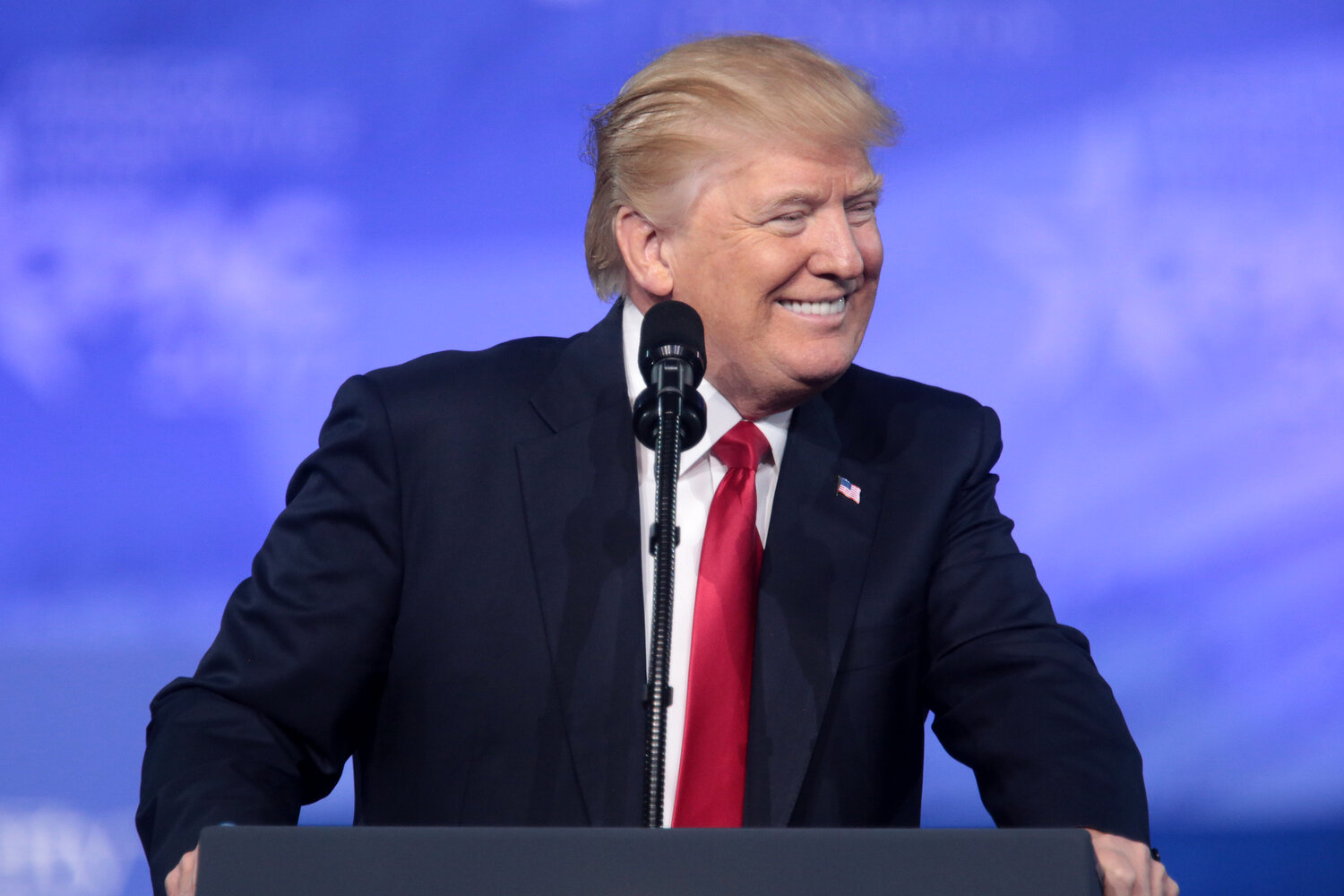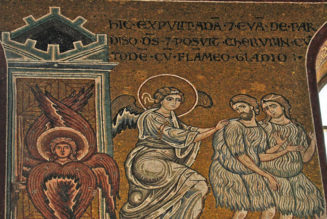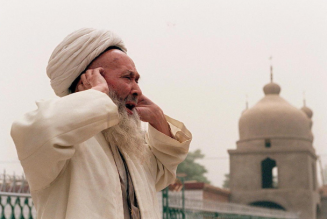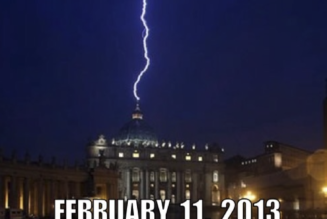
NEW YORK — President Donald Trump and his Democratic opponents are courting voters with less than a year before the 2020 election – and many of them are chasing support from a variety of religious voters.
The Trump campaign announced last week that the president’s re-election efforts would include launching three coalitions: “Evangelicals for Trump,” “Catholics for Trump” and “Jewish Voices for Trump.”
Despite being impeached by the House, the Trump campaign’s focus on these three religious groups aims to expand the president’s support, especially in battleground states where the former real-estate mogul won in 2016.
An analysis of the 2018 midterm elections conducted by Pew Research Center found continuity in the voting patterns of key religious groups. For example, white evangelicals voted for Republican candidates at about the same rate they did in 2014, while religiously unaffiliated voters and Jews again largely backed Democrats.
There’s plenty that Trump and the crowded field of Democrats challenging him have done over the past few months, and are continuing to do as we head into 2020, to court religious voters. Expect that to intensify with the start of the primaries next years and in the months before November’s general election.
Below is a look at Trump’ efforts, along with those of the seven Democrats who qualified for the next debate on Thursday night in Los Angeles.
Donald Trump
Mark Galli, the editor-in-chief of the evangelical magazine Christianity Today, argued Thursday that Trump should be removed from office. In an editorial following Trump’s impeachment, Galli said the case put together by Democrats had been convincing.
Nonetheless, the Trump campaign is hoping evangelicals, Catholics and Jews — especially those on the conservative end of the political spectrum — are swayed by the president’s judicial appointments, pro-life record and stance regarding religious freedom. Despite rhetoric his opponents have called anti-Semitic, Trump’s unwavering support for Israel (a position reiterated by Vice President Mike Pence, who calls himself an evangelical Catholic, is also viewed as a plus among evangelicals and Jews.
Overall, Christians — especially white voters that included evangelicals and Catholics — supported Trump in the last election. Trump has looked to lock in those voters through a number of initiatives, including hiring his personal pastor, Paula White, who recently joined the White House in an official role as an adviser. In 2016, Catholic advisers like Steve Bannon and Kellyanne Conway helped craft Trump’s message. Bannon is no longer working for Trump.
Joe Biden
It was in September that Biden, a Catholic and frontrunner for the Democratic Party’s nomination, reversed himself following his decades-long support for restricting federal funding of abortions. The decision, part of a larger move within the party by all candidates to shift left, will hurt the former vice president with pro-life Catholics.
Christians, particularly those living in the Midwest, are seen as key voter bloc for Biden if he hopes to win the party’s nomination and the general election. Although he has no official religious outreach effort at the moment, Biden is targeting the Catholic vote (he’d be the first Roman Catholic elected to the White House since John F. Kennedy) after an appearance last month in Dubuque, Iowa, a historically Catholic town on the Mississippi River. Biden was also denied Holy Communion last month in South Carolina, a sign of the growing doctrinal rift within Catholicism. A recent poll of Catholics showed that he could get the majority of their vote in a hypothetical matchup against Trump.
Pete Buttigieg
Aside from Booker, the mayor of South Bend, Indiana, is the other Democrat who hasn’t shied away from faith and religious language. He’s openly courted religious voters, especially those on the political left at the start of the primaries. Buttigieg, who is gay, has had a difficult time with African-American voters, particularly more religious ones in the South.
“Mayor Pete” regularly quotes from the Bible during campaign stops and debates to back up his policies. Buttigieg was also the first Democratic presidential candidate to hire a faith outreach coordinator, an effort meant to reach beyond the Democratic base.
Amy Klobuchar
The Minnesota senator has not done anything specific to target religious voters. Nonetheless, her exchange with Brett Kavanaugh last year during his confirmation hearings made her a target for conservatives and hero to liberals, raising her profile and prompting the decision to run for president.
Bernie Sanders
Considered the most to the left of anyone running for the White House, Sanders is Jewish. If elected, he’d also be the first Jewish president. He hasn’t made faith an essential part of his campaign.
Tom Steyer
The billionaire hedge-fund manager was born in New York City, the son of a non-practicing Jewish father and Episcopalian mother. A lifelong Democrat, Steyer has also been involved in philanthropy, although not known for backing religious causes. Although he has claimed that his Christian faith has informed his politics, Steyer has offered no specific plans when it comes to religious voters.
Elizabeth Warren
The only female candidate in the Democratic primary to gain any real traction, Warren has made appeals to faith-based voters. The Massachusetts senator, a practicing Methodist and former Sunday school teacher, has also called on religious voters to resist Trump. Warren, who has not hired a faith outreach coordinator, hopes her message to evangelical progressives, a large anti-Trump segment of the population, can propel her to the White House.
Andrew Yang
The entrepreneur-turned-candidate has primarily focused on issues such as income inequality. He’s also vowed, if elected, to implement a universal basic income to every American adult in the form of $1,000 each month. Yang, who is both Asian American and a Christian and attends services each week at a Reformed church in upstate New York, recently said he can target evangelical voters with his economic plans.
And the rest …
Other notable candidates in the Democratic primary (not in the next debate, but have a religious side) includes New Jersey Senator Cory Booker, who was called last year by New York magazine as “the most overtly Christian Democratic presidential candidate since Jesse Jackson and perhaps even Jimmy Carter.”
Former New York Mayor Mike Bloomberg, who is Jewish and late to the primaries, is known as both a billionaire and philanthropist who has spoken a lot on anti-Semitism.
Ex-Massachusetts Gov. Deval Patrick, another late entrant in the race, is a Christian who hasn’t been afraid in the past to cite Scripture. As candidates up their religion game, it will be interesting to see how people decide to vote over the coming months.
Clemente Lisi is a senior editor and regular contributor to Religion Unplugged. He currently teaches journalism at The King’s College in New York City.








